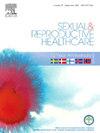Women’s experiences with long journeys to the nearest birthing facility and midwife accompaniment service: A qualitative study
IF 1.7
3区 医学
Q3 PUBLIC, ENVIRONMENTAL & OCCUPATIONAL HEALTH
引用次数: 0
Abstract
Objective
To explore how pregnant women living 90 min or more from the nearest birthing facility experience the journey and accompaniment by a midwife to the facility.
Methods
A qualitative study using semi-structured interviews with nine first-time mothers living in various regions of Norway, conducted in November 2023. Systematic text condensation was used to analyse the data.
Results
The main findings indicated that having local midwifery expertise was a crucial factor for the women’s sense of security. They received care from a midwife from the first signs of the onset of labour at home until they arrived at the hospital. This was important to them as they expressed concerns about unforeseen situations and uncertainty about when to call an ambulance. The midwife’s birthing expertise and presence in the ambulance were described as vital and reassuring by the women. Although the ambulance journey was intense and uncomfortable, the women felt fortunate and satisfied to have access to it. The midwife accompaniment service was considered valuable but unreliable, as there was no guarantee that the midwife would be available, and the ambulance journey might therefore be unaccompanied.
Conclusion
The availability, presence and expertise of midwives were vital factors for these women. Nevertheless, the uncertain nature of the midwife accompaniment service indicates a need for improvement and further research to enhance the reliability and accessibility of midwife accompaniment to a birthing facility in remote areas.
妇女长途旅行到最近的分娩设施和助产士陪同服务的经验:一项定性研究
目的探讨距离最近的分娩设施90分钟及以上的孕妇在助产士陪同下的乘车体验。方法采用半结构化访谈对生活在挪威不同地区的9位首次生育的母亲进行定性研究,于2023年11月进行。采用系统的文本浓缩方法对数据进行分析。结果主要调查结果表明,具备当地助产专业知识是影响产妇安全感的重要因素。她们从家中分娩的最初迹象开始,一直到抵达医院,都得到助产士的照顾。这对他们来说很重要,因为他们对不可预见的情况和不确定何时叫救护车表示担忧。助产士的分娩专业知识和在救护车上的存在被妇女们描述为至关重要和令人放心的。尽管救护车的旅程紧张而不舒服,但她们感到幸运和满足。助产士陪同服务被认为是有价值的,但不可靠,因为不能保证助产士随时待命,因此救护车的旅程可能无人陪伴。结论助产士的可获得性、存在性和专业性是影响这些妇女健康的重要因素。然而,助产士陪伴服务的不确定性表明需要改进和进一步研究,以提高偏远地区助产士陪伴分娩设施的可靠性和可及性。
本文章由计算机程序翻译,如有差异,请以英文原文为准。
求助全文
约1分钟内获得全文
求助全文
来源期刊

Sexual & Reproductive Healthcare
PUBLIC, ENVIRONMENTAL & OCCUPATIONAL HEALTH-
CiteScore
2.70
自引率
5.60%
发文量
73
审稿时长
45 days
 求助内容:
求助内容: 应助结果提醒方式:
应助结果提醒方式:


